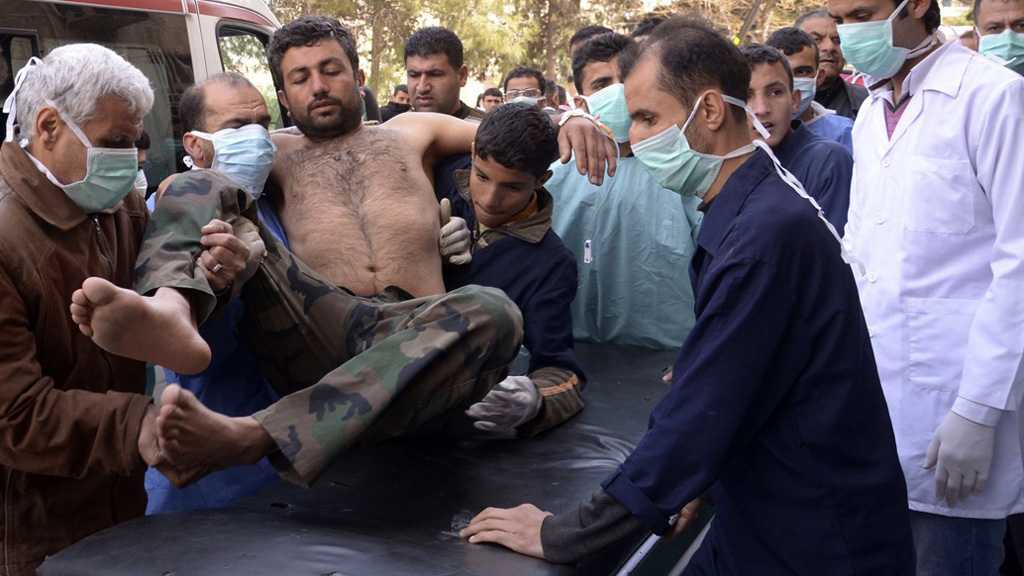Chemical weapons: Syria and UN fail to agree on probe
United Nations talks with the Syrian government over an investigation into the alleged use of chemical weapons have reached an impasse, UN diplomats say.

Syrian President Bashar al-Assad had called on the UN to investigate an alleged chemical weapons near Aleppo in March, which he says was carried out by rebel groups.
However, despite two weeks of negotiations on how an investigation should be run, no agreement has been reached, diplomats said on condition of anonymity.
The sticking point has been that the Syrian government is refusing to allow UN inspectors to go anywhere but Aleppo, despite two other chemical attacks allegedly having taken place: one near Damascus and another in Homs, both in March.
International Editor Lindsey Hilsum blogs: Risk arming al-Qaeda or watch civilians die?
All three attacks have seen both rebels and the government blame the other side.
‘Sufficient evidence’
France and Britain wrote to UN Secretary-General Ban Ki-moon last month saying the investigation should look into all three cases. However, the Syrian Foreign Ministry said in a news release on Monday that the UN request to go anywhere was not in keeping with the Syrian government’s original request.
Britain, France and the Americans have given the UN Secretary-General information about the possible use of chemical weapons in Aleppo and Homs, diplomats said.
“He (Ban Ki-moon) recognized that there is sufficient evidence to investigate both in Homs and in Aleppo,” the senior diplomat said. “They should not go in to investigate the one incident if they are told by the Syrians that they can’t investigate the second incident.”
An inspection team is currently ready to fly to Syria at 24 hours notice. There will be at least 15 members of the inspection team, mainly from Nordic countries, Latin America or Asia. None of them is from a permanent member of the UN Security Council.
If the UN team is not allowed into Syria, it could conduct the investigation via eye-witness accounts from refugees outside the country.
According to Western intelligence agencies, Syria is believed to have one of the largest remaining stockpiles of undeclared chemical weapons in the world.
On Wednesday, jihadist group al-Nusra officially announced that it was part of the Iraqi branch of al-Qaeda, leading to concerns that, in the event of Assad’s downfall, al-Qaeda would take control of the chemical weapons.
Read more: what weapons do the rebels have?
